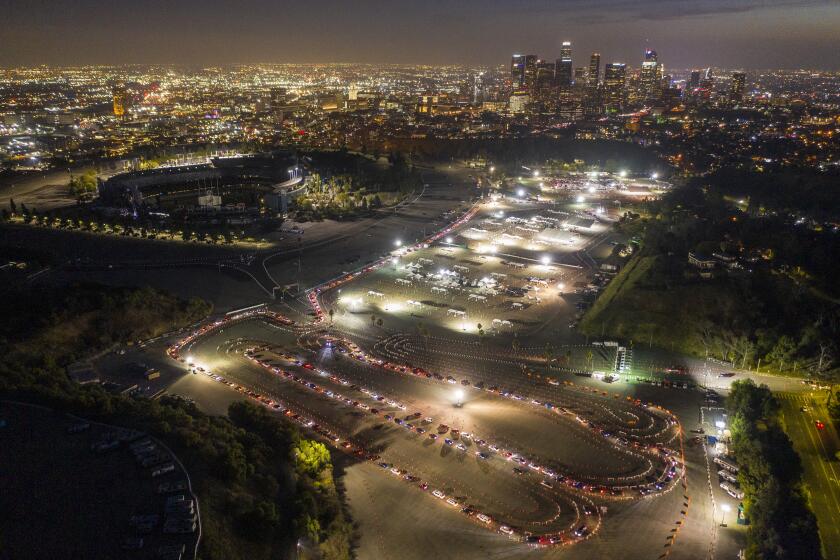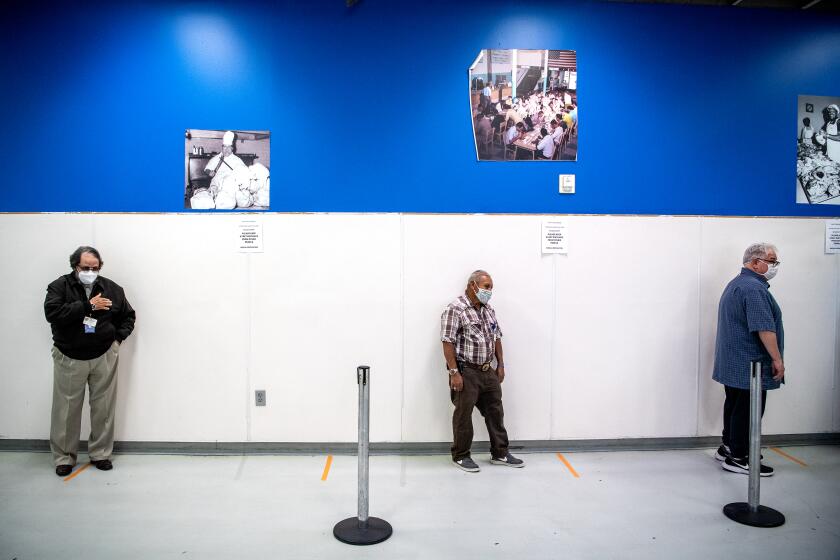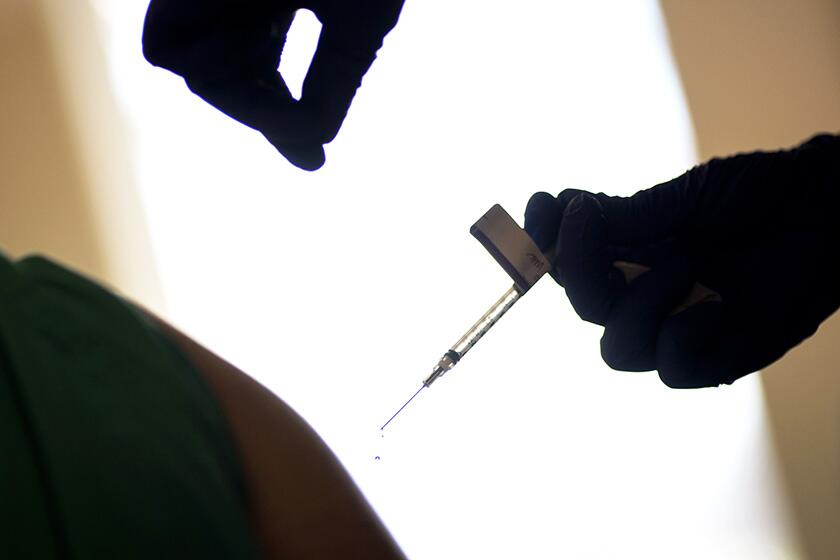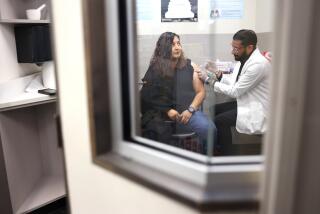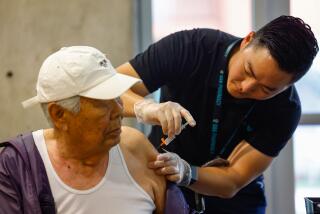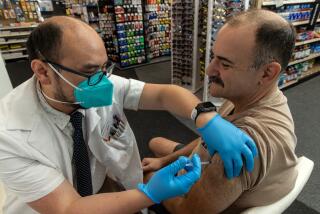April could see ‘open season’ for COVID-19 vaccines, Fauci says
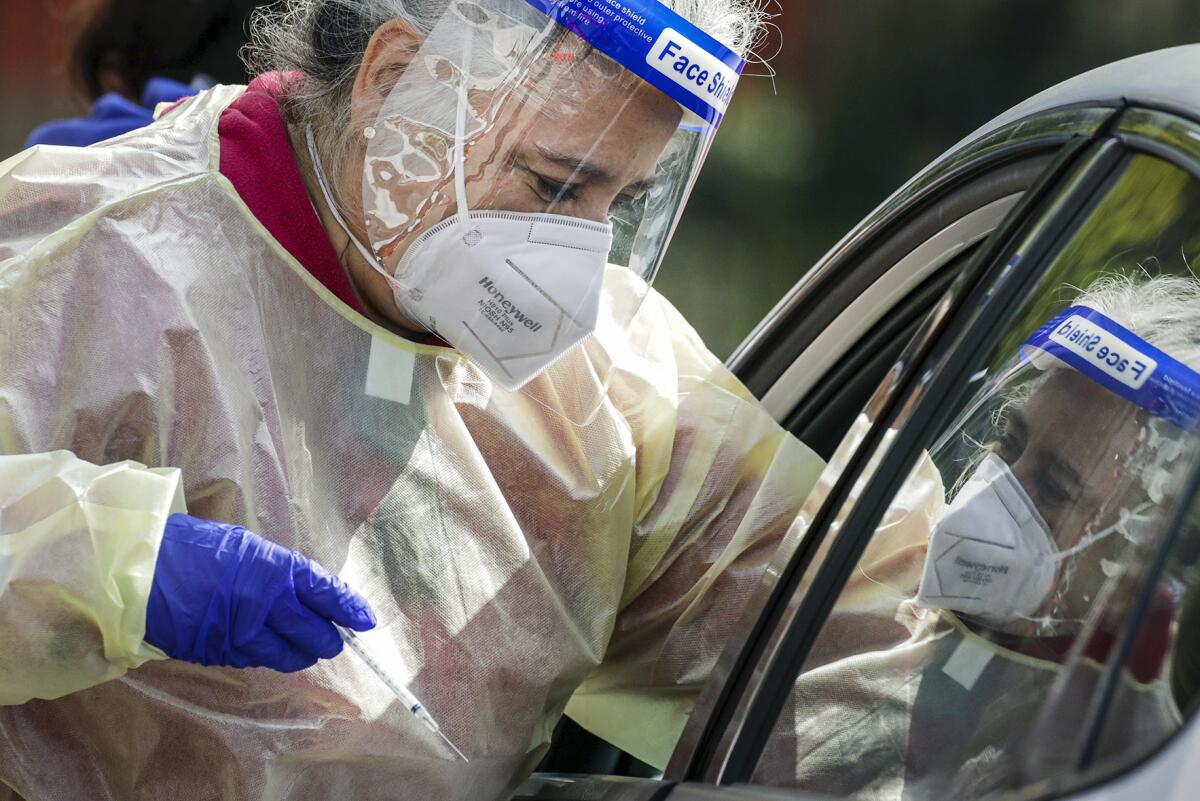
The United States could see “open season” for COVID-19 vaccine doses by April, Dr. Anthony Fauci said Thursday, an optimistic forecast that comes as states continue to clamor for additional supplies to ramp up their rollouts.
Though the nation will still be far from administering doses to all those who need it by then, Fauci said he believes conditions will improve to the point that health officials can begin inoculating the wider population.
“I would imagine, by the time we get to April, that will be what I would call, for better wording, ‘open season’ — namely, virtually everybody and anybody in any category could start to get vaccinated,” the U.S. government’s top infectious diseases expert said during an appearance on NBC’s “Today” show.
“From then on, it would likely take several more months just logistically to get vaccine into people’s arms, so that, hopefully, as we get into the middle and end of the summer, we could have accomplished the goal of what we’re talking about: namely, the overwhelming majority of people in this country having gotten vaccinated.”
Until much larger vaccine shipments start rolling in consistently, officials say, it will take time to finish vaccinating those who are eligible.
At this point, only select groups are eligible to receive the vaccines — a strategic decision meant to ensure healthcare and certain front-line workers, as well as those most at risk of suffering the severest consequences of COVID-19, are first in line.
In California, those who work in healthcare, live in long-term care facilities or are ages 65 and older can currently be vaccinated. Teachers, child-care workers and other educators, food and agriculture workers, and members of law enforcement are also eligible — though many local health departments have yet to allow those groups to register for appointments, as vaccine supplies remain tight.
Health authorities nationwide have said supply is the biggest impediment to speeding up vaccinations. Dose allocations have varied from week to week, and until recently, officials received scant insight into what their shipments would look like even a few weeks into the future, making long-term planning a challenge.
Fauci, however, said he expects the vaccine distribution to accelerate in the months ahead.
“If you look at what’s going to happen as we get into March and April, the number of available doses will allow for much more of a mass vaccination approach, which is really much more accelerated than what you’re seeing now,” he said. “If you compare now to what we were doing just literally a month ago, the escalation has really been considerable.”
Nationwide, nearly 66 million vaccine doses have been delivered, and about 44.8 million have been administered, per the latest figures from the Centers for Disease Control and Prevention.
The South African coronavirus variant has been identified in two people in the Bay Area. Nationally, there are at least nine other cases confirmed in three states.
Federal officials said this week that they would further increase the nationwide weekly vaccine allocation by 500,000 doses, to 11 million from 10.5 million.
That’s up from the 8.6 million doses that were being delivered three weeks ago, said Jeff Zients, who leads President Biden’s task force on COVID-19.
“We’ve launched efforts to get more vaccines to pharmacies and community health centers. And we’re building new vaccination centers from the ground up, in stadiums, community centers, school gyms and parking lots across the country,” he said during a briefing Wednesday.
Those efforts include the creation of two federally supported mass vaccination sites at Cal State Los Angeles and the Oakland Coliseum. Both are scheduled to open next week and will be staffed mostly by federal workers.
The second shot of the COVID vaccine does not need to happen precisely 21 or 28 days after the first to be effective.
Military officials said Wednesday that 222 soldiers from Colorado’s Ft. Carson will be deployed to support the L.A. location.
“Getting shots — vaccinations — in people’s arms is the mission,” Lt. Gen. Laura Richardson, the U.S. Army North‘s commander, said in a statement. “And this team, here on behalf of the governor and state, has the ability to get thousands more people vaccinated every day.”
The recently announced increase in the weekly allocation equates to roughly 50,000 additional doses for California, Gov. Gavin Newsom said.
That’s a welcome boost but, he acknowledged, is “not enough.”
The state is receiving a little more than 1 million doses a week, Newsom said. At that rate, it would take many months to receive sufficient doses to inoculate a significant portion of California’s roughly 40 million residents — because both of the currently available vaccines require two doses.
“The issue of vaccinations is an issue of available supply nationwide,” Newsom said during a briefing Wednesday. “The issue of scarcity is real.”
About 7.6 million total vaccine doses have been delivered to local public health departments and medical providers throughout the state, and almost 5.1 million have been administered, according to data compiled by The Times.
More to Read
Sign up for Essential California
The most important California stories and recommendations in your inbox every morning.
You may occasionally receive promotional content from the Los Angeles Times.
